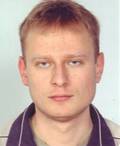
Josip Kajinić, PhD
Josip Kajinić was born on 24 September 1982 in Zagreb. Having finished primary and secondary education in Zaprešić and Zagreb, he graduated history from the Centre for Croatian Studies in January 2007. In 2007 Josip Kajinić became a PhD student at the Centre for Croatian Studies and a junior researcher at the Croatian Institute of History. He participated in the research project on the topic of the Catholic Church, ideologies and political programs as a research assistant, and in 2012 he earned his PhD with a dissertation on the archbishop Franjo Šeper and church-state relations between 1960 and 1969, under the mentorship of Jure Krišto, PhD. He has published 4 scientific and 16 professional papers and actively participated at a number of scientific assemblies. His works deal with the questions of position and activities of the Catholic Church and its prelates within totalitarian regimes, particularly Communism. He also worked on the monograph on the Croatian Institute of History published in 2011, the year of the Institute's 50th anniversary.



